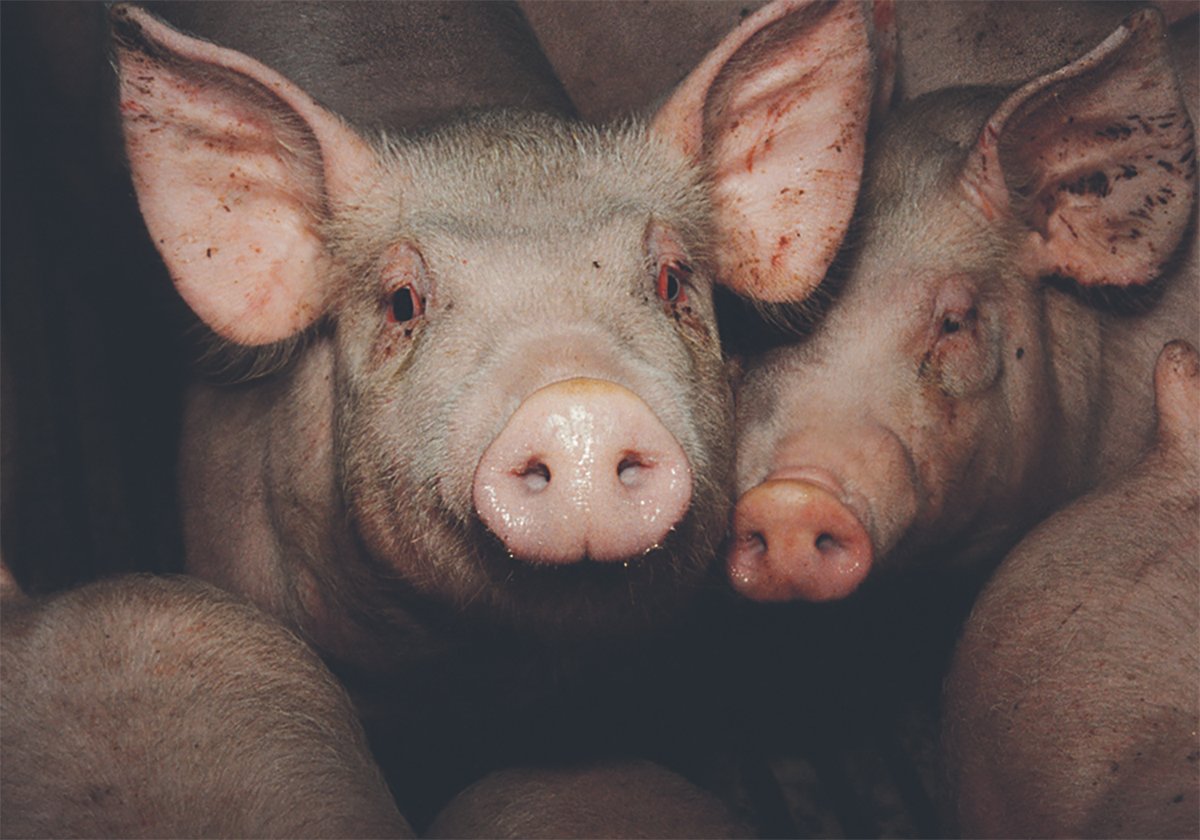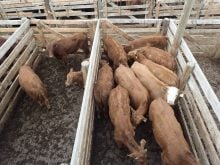& Reuters News Agency
news
Win or lose, the Alberta Barley Commission’s court battles with the Canadian Wheat Board are far from over.
The Federal Court of Appeals has reserved judgment as to whether the board’s monopoly violates farmers’ constitutional rights.
The appeal was heard in Calgary May 1 and 2. The commission’s lawyers began their arguments before a three-judge panel, saying the wheat board legislation violates western prairie farmers’ rights under Canada’s Charter of Rights and Freedoms because they are being “robbed of their dignity, self-worth and personal autonomy.”
Read Also

The Western Producer Livestock Report – October 30, 2025
Western Producer Livestock Report for October 30, 2025. See U.S. & Canadian hog prices, Canadian bison & lamb market data and sales insights.
If the barley commission, which represents about 39,000 members, wins its appeal, the government will undoubtedly appeal to the Supreme Court. If the ruling goes against them, Foster said the commission and other appellants must decide whether to fund a Supreme Court appeal.
A main point argued in the appeal is a Supreme Court decision involving the Canadian Egg Marketing Agency. The November 1998 decision upheld Canadian national supply management marketing plans for agricultural commodities as legitimate.
The decision tested the Federal-Provincial Egg Marketing Plan’s validity under the charter. Two egg-producing companies in the Northwest Territories challenged the plan in the territory, where supply-management did not exist.
Keith Groves, one of the lawyers representing the barley commission, Western Barley Growers Association and 21 individual farmers, said during a later interview that the Canadian Egg Marketing Agency decision is significant because the agency is a law of general application applied equally across the country.
“We say the Canadian Wheat Board Act is not a law of general application.”
If a law does not apply equally to all, a mere breech of the right is enough to activate the charter, he said.
“The narrow point is this, if the court says this is not a law of general application, the crown has to prove and justify the invasion of the right to market across interprovincial borders.”
The original case was heard in Calgary and Winnipeg in 1997. The judgment ruled no rights were violated under the Canadian Charter of Rights and Freedoms because it doesn’t cover economic rights.
Buyback in spotlight
During the first trial, the crown said the buy-back program is offered to those who do not want to participate in mandatory pooling.
Under the law, wheat and barley farmers in the Prairies must sell their crops to the board, which pools sales revenues and returns proceeds to producers during and after the growing season.
“If the sections (of the wheat board act) that offend the Charter of Rights are struck out, then what remains is the end of the Canadian Wheat Board monopoly,” said Groves.
It would remain a licensing body for interprovincial movement of wheat and barley, but could no longer use monopoly powers over buying and selling, he said.















